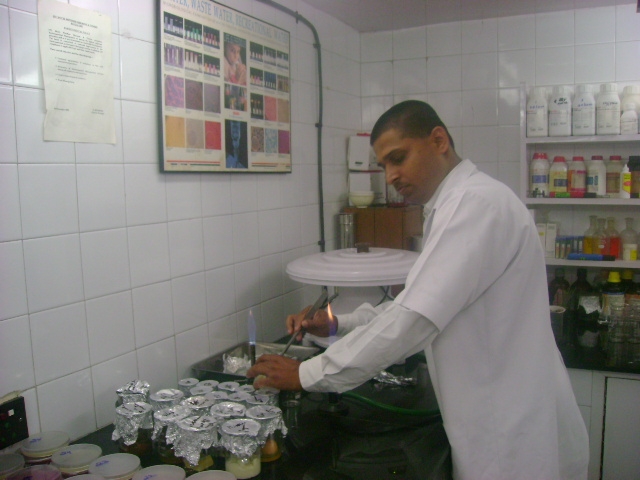|
Opportunities for the Differently Abled:
The ITC Experience
‘It is a
terrible thing to see and have no vision’
Helen Keller
The Indian economy is growing at the rate of 8% every year. The
competing needs of the industry for skilled persons are growing rapidly
and yawning gaps are already beginning to emerge between supply and
demand. In this given scenario, the Indian industry needs to look at
opportunities to employ people with disabilities, not out of sympathy
but sensitively, creatively and empathetically.

Disability is medically defined as a condition grounded in the
physiological, biological and intellectual impairment of an individual.
According to the National Human Rights Commission, Disability Manual,
2005, the World Health Organisation (WHO) has made a distinction between
impairment, disability and handicap. ‘Impairment’ refers to organ-level
functions or structures, ‘disability’ refers to person-level limitations
in physical and psycho-cognitive activities, and ‘handicap’ is a
disadvantage for a given individual, resulting from relation between the
individual and the society. This approach emphasises the social
conditions that disable a group of individuals by ignoring their needs
of accessing opportunities in a manner conducive to their circumstances.
The former World Bank President, James D. Wolfensohn says, ‘If we remove
the barriers that have relegated disabled people, provide them with an
opportunity to work, to become self sufficient and contribute to their
community, I believe that their families, community, society and the
local economy will also benefit. And this is also what disabled people
want, the chance to get educated, find rewarding work, lead worthwhile
lives and be valued members of their community and of the world at
large.’ The ITC WelcomGroup is attempting to go beyond compliance by
networking with other divisions of ITC and other stakeholders. The total
number of employed persons with disabilities in this part of the
hospitality sector is at present 215. Currently, through sharing our
best practices with chambers of commerce and the media, we are
attempting to demystify the disability sector. Sensitivity towards a
guest, which is built in our trade, is being directed towards physically
challenged persons (PWD) in order to make the inclusion process
successful. In order to dispel any such apprehensions, the family
members of PWDs are invited for the interview to understand where their
relatives will work. All hearing impaired persons have been issued
whistles, to blow the same in case of any emergency.
Information Technology is a vibrant and dynamic force. Teleworking is
increasingly becoming an employment mode and an option that can be used
by people with disabilities. Jobs such as programmers, data processors,
researchers, designers and publishers can be done by people with
disabilities, provided the assistive technology and software is made
available to them.
The emerging world is one of increasing electronic interactions, be it
in the economic, social or political spheres. The convergence of
information and communications technologies has made this possible. We
already have examples of persons with disabilities working at various
levels including editors, managers, designers, teachers, etc. Employers
have taken initiatives in this direction in the recent times, but there
is a long way to go.
The hospitality industry is in the process of engaging all its suppliers
to engage PWDs in their organisations sensitively. The Indian industry
is in the midst of exciting times. Many industries are working towards
being an equal opportunity company. By taking on PWDs into their
industry, the diversity factor will increase and open new perspectives
not experienced so far. q
Niranjan Khatri
niranjan.khatri@itcwelcomgroup.in
Back to Contents
|